Beginners Guides
How Can I Find Answers To Tiny House Zoning Questions

As someone deeply committed to the lifestyle of living in tiny houses, I’m well aware of the hurdles and obstacles associated with understanding zoning regulations. Not long ago, I discovered a case study that exemplifies the significance of seeking solutions to zoning inquiries related to tiny houses.
Sarah, a young professional, dreamed of downsizing and simplifying her life by building a tiny house on a piece of land she owned. However, she soon discovered that her local zoning regulations prohibited such dwellings. Frustrated and discouraged, Sarah began searching for solutions and stumbled upon a wealth of resources that helped her navigate the complex world of zoning laws.
In this article, I will share my knowledge and expertise on how to find answers to tiny house zoning questions. By understanding the basics of zoning laws, researching local codes, consulting with professionals, joining tiny house communities, utilizing online resources, considering alternative living options, seeking variance or exemption, and staying informed and updated, you can overcome zoning obstacles and make your tiny house dreams a reality.
Key Takeaways
- Research local zoning codes and understand the basics of zoning laws before pursuing a tiny house living option.
- Consult with professionals such as land use attorneys, zoning consultants, and tiny house builders/advocates for guidance and advice.
- Utilize online resources, websites, forums, and social media groups to gather knowledge and connect with others who have experience with zoning challenges.
- Attend local government meetings, explore tiny house communities, and consider RV parks and campgrounds as potential legal options for tiny house living.
Understand the Basics of Zoning Laws
Don’t let zoning laws scare you away from your dream of a tiny house – understanding the basics will empower you to navigate the regulations with confidence! Researching regulations and understanding the legal requirements is crucial when it comes to building a tiny house.
Zoning laws are put in place by local governments to regulate land use and ensure that certain standards are met. These laws dictate where and how you can build your tiny house, so it’s important to familiarize yourself with them.
To begin, research local zoning codes specific to your area. These codes will outline the rules and restrictions for building and living in a tiny house. Pay attention to zoning designations, as they determine the type of structures allowed in each area. Additionally, familiarize yourself with setback requirements, which dictate the distance your tiny house must be from property lines or other structures. Other important factors to consider include minimum square footage requirements, utility connections, and parking regulations.
By understanding the basics of zoning laws and researching local zoning codes, you will have the knowledge and confidence to tackle your tiny house project. This information will guide you through the legal requirements and help you find the answers to your zoning questions.
Research Local Zoning Codes
Explore your local zoning codes to gain insight on regulations in your area for building and living in a tiny house. Researching local zoning codes is an essential step in understanding the basics of zoning laws and ensuring that you comply with the regulations specific to your location. By taking the time to thoroughly examine these codes, you can avoid potential legal issues and ensure that your tiny house project is feasible.
To help you navigate through the complex world of zoning regulations, I have created a table that outlines the key factors to consider when researching local zoning codes for your tiny house:
| Factors to Consider | Explanation | Importance |
|---|---|---|
| Permitted Use | What is allowed? | Determines feasibility |
| Setback Requirements | How far from | Affects building design |
| property lines must you | ||
| place your tiny house? | ||
| Minimum Square | How big can your | Impacts design options |
| Footage | tiny house be? | |
| Parking Requirements | Do you need to | Affects availability of |
| provide parking spaces? | suitable land | |
| Building Codes | What construction | Ensures structural and |
| standards must be met? | safety requirements are | |
| followed |
By referring to this table, you can gain a comprehensive understanding of the specific regulations that apply to your tiny house project. Once you have familiarized yourself with the local zoning codes, you can consult with a professional to further clarify any questions or concerns you may have.
Consult with a Professional
When it comes to navigating the complex world of local zoning codes for tiny houses, I highly recommend consulting with a professional. Hiring a land use attorney or zoning consultant can provide you with expert guidance and ensure that you are making informed decisions.
Additionally, seeking advice from a tiny house builder or advocate can provide valuable insights and practical solutions based on their experience in the field. By tapping into the expertise of these professionals, you can confidently address any zoning questions or concerns you may have and make informed decisions for your tiny house project.
Hire a land use attorney or zoning consultant
Consider hiring a land use attorney or zoning consultant to ensure your tiny house dreams become a reality without any legal obstacles standing in your way.
Land use regulations and zoning permits can vary greatly from one area to another, and it’s crucial to have a professional who understands the intricacies of these laws.
A land use attorney or zoning consultant will have the expertise to navigate through the complex process of obtaining the necessary permits for your tiny house. They can provide valuable advice on zoning restrictions, setback requirements, and other legal considerations that may affect your project.
By working with a professional, you can save time, money, and avoid potential legal issues down the road. With their guidance, you can confidently move forward with your tiny house plans.
Seeking advice from a tiny house builder or advocate can also provide valuable insights into the practical aspects of building a tiny house.
Seek advice from a tiny house builder or advocate
Engage with a tiny house builder or advocate to gain valuable insights and glide smoothly through the process of turning your tiny house dreams into reality, like a skilled sailor navigating uncharted waters.
These professionals have extensive knowledge and experience in dealing with tiny house zoning regulations and tiny house building codes. They can provide you with guidance on how to navigate the complex world of zoning laws, ensuring that your tiny house meets all the necessary requirements. They can also help you understand any potential challenges or obstacles that you may face during the zoning process and offer solutions to overcome them.
By seeking advice from a tiny house builder or advocate, you can save yourself time and frustration by tapping into their expertise.
Transitioning into the subsequent section, joining tiny house communities can also provide valuable insights and support in navigating tiny house zoning questions.
Join Tiny House Communities
Joining tiny house communities can be a great way to find answers to zoning questions and connect with like-minded individuals in the process. These communities are made up of people who are passionate about tiny house living and can provide valuable insights and advice. Here are three reasons why joining a tiny house community can be beneficial:
-
Networking: By joining a tiny house community, you gain access to a network of individuals who’ve already navigated the challenges of zoning regulations. They can offer guidance based on their own experiences and connect you with local resources and contacts.
-
Support and Resources: Tiny house communities often have online forums or social media groups where members can ask questions and share information. This can be a valuable resource for finding answers to specific zoning questions and learning about alternative housing options.
-
Learning Opportunities: Many tiny house communities organize events, workshops, and meetups where you can learn more about tiny house living and zoning regulations. These events often feature experts in the field who can provide valuable insights and advice.
By joining a tiny house community, you can tap into a wealth of knowledge and experience that can help you navigate the complexities of zoning regulations. Once you’ve explored the benefits of these communities, the next step is to utilize online resources to further enhance your understanding of tiny house zoning.
Utilize Online Resources
Utilize online resources to unlock a virtual treasure trove of knowledge and guidance, like a GPS guiding you through the intricate maze of tiny house zoning regulations. The internet is packed with valuable information and tools that can help you find answers to your specific zoning questions.
Online resources such as websites, forums, and social media groups dedicated to alternative living options can be incredibly useful in navigating the complex world of tiny house zoning. Websites like Tiny House Community and Tiny House Talk provide comprehensive guides and articles that cover various aspects of tiny house living, including zoning regulations. These resources often break down zoning laws by state or city, offering detailed information on what is allowed and what is not.
Additionally, online forums and social media groups allow you to connect with others who are passionate about tiny houses and can share their experiences and insights on navigating zoning challenges. By utilizing these online resources, you can gain a better understanding of the specific zoning regulations in your area and learn from the experiences of others who have gone through the process.
Armed with this knowledge, you can confidently attend local government meetings and engage in discussions about tiny house zoning, knowing that you are well-informed and prepared.
Attend Local Government Meetings
By attending local government meetings, you can actively participate in shaping the future of alternative living options and gain valuable insights into the policies and regulations that affect your desired lifestyle.
Local government meetings provide a platform for community members to voice their concerns, share ideas, and influence decision-making processes. This is an excellent opportunity to connect with like-minded individuals who are also interested in exploring alternative housing options such as tiny houses.
During these meetings, you can learn about existing zoning laws and regulations that may impact your ability to live in a tiny house. You can also find out about any upcoming changes or discussions regarding alternative housing options. By actively engaging in these meetings, you can contribute to the conversation and advocate for more inclusive zoning policies that accommodate tiny houses.
Attending local government meetings allows you to directly interact with policymakers and get a better understanding of their perspectives and priorities. You can ask questions, raise concerns, and propose solutions. Building relationships with local officials and demonstrating your commitment to alternative living options can help create a supportive environment for tiny house enthusiasts.
Considering alternative living options requires a comprehensive understanding of the regulatory landscape and the opportunities available.
Consider Alternative Living Options
When it comes to finding answers to zoning questions about tiny houses, one alternative living option to consider is exploring tiny house communities or eco-villages. These communities often have specific regulations and guidelines in place that make it easier to navigate the zoning process for tiny homes.
Another option to explore is looking into RV parks or campgrounds that allow tiny homes. Many of these parks have designated areas or hookups for tiny houses, making it a convenient and legal option for tiny house living.
Explore tiny house communities or eco-villages
Imagine living in a close-knit community of charming tiny houses nestled amongst lush greenery and surrounded by like-minded individuals who share a passion for sustainable living. Exploring tiny house communities or eco-villages is a great way to immerse yourself in the world of sustainable living and alternative housing models.
Here are four reasons why you should consider this option:
-
Community Support: Living in a tiny house community offers a strong sense of belonging. You’ll have neighbors who understand and support your lifestyle choices.
-
Shared Resources: Many tiny house communities have shared amenities like communal gardens, common spaces, and workshops, allowing for a more efficient use of resources.
-
Learning Opportunities: Being part of a community means you can learn from others’ experiences and gain valuable knowledge about sustainable living practices.
-
Networking: Tiny house communities often organize events, workshops, and gatherings, creating opportunities to connect with like-minded individuals and expand your network.
By exploring tiny house communities, you can take a step towards sustainable living and alternative housing models. Look into RV parks or campgrounds that allow tiny homes to continue your exploration.
Look into RV parks or campgrounds that allow tiny homes
Consider researching RV parks or campgrounds that accommodate tiny homes, as these locations can provide a unique and convenient opportunity to experience sustainable living in a community setting. When exploring RV park options, it’s important to familiarize yourself with their specific regulations regarding tiny homes.
Some parks may have restrictions on the size, design, or duration of stay for tiny houses. It’s crucial to thoroughly review these regulations before making any decisions. Additionally, it’s worth noting that some campgrounds may offer more flexibility in terms of zoning requirements compared to traditional residential areas. This could potentially open up more possibilities for finding suitable locations for your tiny home.
As we move forward, it’s essential to consider seeking variance or exemption to further explore the zoning options available for tiny homes.
Seek Variance or Exemption
To seek a variance or exemption for building a tiny house, it’s crucial to understand the process involved. This includes researching the specific requirements and regulations for variances or exemptions in your local area.
Consultation with local authorities is essential to determine the feasibility of this option and to gather all the necessary information and paperwork needed for the application process. It’s important to be knowledgeable about the specific laws and regulations in order to successfully navigate through this process.
Understand the process of obtaining a variance or exemption
If you’re looking for a way to navigate the complexities of tiny house zoning, understanding how to obtain a variance or exemption can be your key to success.
The variance process and exemption process are two potential avenues for obtaining permission to build or live in a tiny house in an area that may not typically allow it. The variance process involves requesting a deviation from the existing zoning regulations, while the exemption process seeks to exempt the tiny house from specific requirements.
Both processes require thorough research, preparation of necessary documents, and presenting a strong case to the local authorities. It’s important to consult with local authorities on the feasibility of this option, as they can provide guidance on the specific requirements and likelihood of success in your area.
Transitioning into the subsequent section, it is essential to gather as much information as possible before proceeding with the variance or exemption process.
Consult with local authorities on the feasibility of this option
Now that I understand the process of obtaining a variance or exemption, it’s time to consult with local authorities on the feasibility of this option.
Before moving forward, it’s crucial to consider the local regulations and understand if obtaining a variance or exemption is even possible in my area. I will reach out to the local zoning department or planning commission to get their input and guidance. They will be able to provide me with valuable information regarding the specific requirements and restrictions that apply to my situation.
By consulting with these local authorities, I can ensure that I’m making informed decisions and avoid any potential legal issues down the line. Once I have gathered all the necessary information, I’ll be better prepared to navigate the process and be prepared for compromises in order to make my tiny house dream a reality.
Be Prepared for Compromises
Get ready to make some compromises when it comes to tiny house zoning questions. Zoning regulations can be strict and may require you to adjust your plans or expectations. Here are a few things to consider:
-
Size limitations: Many zoning regulations have minimum size requirements for residential dwellings. Your dream tiny house may need to meet these requirements or be classified as an accessory dwelling unit.
-
Placement restrictions: Zoning regulations may dictate where you can place your tiny house. It may need to be on a permanent foundation or in a designated tiny house community.
-
Utilities and infrastructure: Zoning regulations often require connection to utilities such as water, sewage, and electricity. Make sure your tiny house can comply with these requirements.
-
Community concerns: Some local authorities may have concerns about the impact of tiny houses on the neighborhood. Be prepared to address these concerns and work with the community to find solutions.
It’s important to stay informed and updated on zoning regulations as they can change over time. This will help you navigate the process and ensure that your tiny house is compliant with local regulations.
Stay Informed and Updated
Staying informed and updated on zoning regulations is crucial to avoid any surprise changes that could potentially derail your tiny house dreams. As someone who has gone through the process of navigating zoning regulations for my own tiny house, I understand the importance of staying on top of any changes or updates that may occur. To help you stay informed and keep up to date, I’ve created a handy table below with a list of resources and strategies that can help you find the answers to your tiny house zoning questions.
| Resource/Strategy | Description |
|---|---|
| Local Planning Department | Contact your local planning department to inquire about the specific zoning regulations for tiny houses in your area. They will be able to provide you with the most accurate and up-to-date information. |
| Online Forums and Communities | Join online forums and communities dedicated to tiny house living. These platforms often have discussions and threads about zoning regulations, and members can share their experiences and knowledge. |
| Tiny House Associations | Connect with local or national tiny house associations. They often have resources and contacts that can help you navigate zoning regulations. |
| Tiny House Workshops and Events | Attend workshops or events focused on tiny house living. These events often include sessions on zoning and legal considerations, providing you with valuable information and insights. |
By utilizing these resources and strategies, you can stay informed and up to date on zoning regulations, ensuring that you can navigate the process with confidence and clarity. Remember, knowledge is power, and staying informed will help you overcome any obstacles that may come your way.
Frequently Asked Questions
What is the average cost of building a tiny house?
The average cost of building a tiny house can vary depending on several factors. However, it typically ranges between $20,000 to $50,000.
Financing options for tiny house construction include personal loans, RV loans, and even crowdfunding platforms. It’s essential to consider your budget, desired features, and materials when estimating the cost.
Detailed planning and research can help you find the best financing option and ensure that your tiny house project stays within your budget.
Are there any specific requirements for the size of a tiny house?
Specific size requirements for tiny houses vary depending on the local regulations and zoning laws. Tiny house size regulations typically dictate the maximum square footage, height, and number of rooms allowed. It is important to research and consult with local authorities or zoning departments to ensure compliance with these requirements.
Additionally, building codes may also impact the size and design of a tiny house, so it’s crucial to familiarize oneself with these codes as well.
Can I legally live in a tiny house on wheels in my desired location?
Living in a tiny house on wheels in my desired location is subject to the legality of tiny house living. Some areas have specific zoning regulations that may prohibit or restrict the use of tiny houses as permanent residences.
Finding tiny house friendly locations can be challenging due to these zoning restrictions. It’s advisable to research local laws and regulations, consult with local authorities, and join online communities to gather information and insights from others who’ve navigated these challenges.
What are the common challenges faced when obtaining a building permit for a tiny house?
Obtaining a building permit for a tiny house can present several challenges. Firstly, understanding and complying with the specific zoning regulations in your desired location is crucial. It involves researching the local building codes and ordinances to ensure your tiny house meets the requirements.
Secondly, navigating the permit application process can be complex, as it may involve submitting detailed plans, inspections, and fees.
Overall, it’s important to be well-informed and prepared to tackle these challenges when obtaining permits for a tiny house.
Are there any specific restrictions on the utilities and systems in a tiny house, such as water, electricity, or sewage?
Specific regulations and zoning requirements regarding utilities and systems in a tiny house vary depending on the location. It’s crucial to research the local building codes and contact the appropriate authorities to obtain accurate information. Some areas may have restrictions on water, electricity, or sewage systems, while others may have specific guidelines to ensure safety and compliance. Consulting with professionals or joining online communities dedicated to tiny house living can also provide valuable insights and resources.
Conclusion
In conclusion, finding answers to tiny house zoning questions may seem like an uphill battle, but fear not! By following the steps outlined in this article, you’ll become a zoning expert in no time.
From understanding the basics of zoning laws to researching local codes, consulting with professionals, and joining tiny house communities, you’ll have all the tools you need to navigate the world of zoning regulations.
So go forth, my fellow tiny house enthusiasts, and conquer the zoning world with confidence and gusto!
Hi, I’m Emma. I’m the Editor in Chief of Tiny House 43, a blog all about tiny houses. While tree houses are often associated with childhood, they can be the perfect adult retreat. They offer a cozy space to relax and unwind, surrounded by nature. And since they’re typically built on stilts or raised platforms, they offer stunning views that traditional homes simply can’t match. If you’re looking for a unique and romantic getaway, a tree house tiny house might just be the perfect option.
Beginners Guides
How Much Is A Tesla Tiny House

There’s a well-known adage that ‘the best things come in small packages.’ This statement rings especially true for the Tesla Tiny House. In this piece, I’ll be diving into the captivating realm of the Tesla Tiny House, discussing the innovative and eco-friendly aspects of this compact living area, and examining what the cost of adopting such a sustainable lifestyle will be.
The Tesla Tiny House is not your average tiny house. It is a masterpiece of design, incorporating cutting-edge sustainable features and technology integration. From solar panels to Powerwalls, this tiny house is a testament to Tesla’s commitment to a greener future.
But what about the cost? How much does it actually take to own one of these marvels? In this article, we will break down the cost of materials and construction, as well as the factors that can affect the price. We will also compare the Tesla Tiny House to traditional tiny houses and explore potential savings and return on investment.
So, if you’re curious about the price tag on a Tesla Tiny House and want to know more about financing options and payment plans, read on. You’ll also find testimonials and reviews from Tesla Tiny House owners, giving you firsthand insights into this unique living experience.
Key Takeaways
- The Tesla Tiny House is an innovative and sustainable living space that incorporates cutting-edge sustainable features and technology integration.
- It is a 20ft long, 7.5ft wide, and 13.5ft high living space with space-saving features, a Tesla Model X, a multifunctional living area, a kitchenette, a bathroom, and a sleeping loft.
- The sustainable features of the Tesla Tiny House include solar panels on the roof, a Powerwall battery system, water-saving fixtures, high-quality sustainable materials, advanced insulation, and energy-efficient appliances.
- While it is more expensive than traditional tiny houses, the Tesla Tiny House offers modern amenities and sustainability, promotes a simplified lifestyle, reduces carbon footprint, reduces utility bills, and represents the future of sustainable living.
Overview of the Tesla Tiny House Design
Get ready to be amazed by the incredible design of the Tesla Tiny House! The Tesla Tiny House features innovative design elements that make it both practical and sustainable.
This tiny house is built on a trailer and is equipped with solar panels on the roof, allowing it to generate its own electricity. It also has a Powerwall battery system, which stores excess energy for use during cloudy days or at night.
Inside, the Tesla Tiny House boasts a sleek and modern interior, with space-saving features such as foldable furniture and hidden storage compartments. The house is also equipped with a Tesla Model X, which serves as a demonstration of how electric vehicles can be seamlessly integrated into a sustainable lifestyle.
With its unique features and benefits, the Tesla Tiny House represents the future of sustainable living. Now, let’s explore its sustainable features and technology integration.
Sustainable Features and Technology Integration
Explore the impressive sustainable features and seamless integration of cutting-edge technology in this innovative compact living space. The Tesla Tiny House is designed with sustainability in mind, offering a range of eco-friendly features that minimize its environmental impact.
-
Solar Power: The tiny house is equipped with solar panels that harness the power of the sun to generate electricity, making it energy self-sufficient and reducing the reliance on traditional power sources.
-
Powerwall Battery: A Powerwall battery system is installed to store excess solar energy, allowing for continuous power supply even during periods of low sunlight.
-
Water Efficiency: The tiny house incorporates water-saving fixtures and systems, such as low-flow faucets and a greywater recycling system, to minimize water consumption and promote sustainability.
The integration of these sustainable features with cutting-edge technology makes the Tesla Tiny House an impressive example of eco-friendly living.
Moving on to the next section, let’s delve into the size and layout of this compact living space.
Size and Layout of the Tiny House
Step into this innovative compact living space and discover the clever size and layout that maximizes functionality and comfort. The Tesla tiny house is designed with careful consideration of its dimensions to ensure that every inch is utilized effectively.
With a length of 20 feet, a width of 7.5 feet, and a height of 13.5 feet, this tiny house provides ample space for all your needs. The interior design is thoughtfully crafted, featuring a multifunctional living area, a fully equipped kitchenette, a bathroom with a composting toilet, and a cozy sleeping loft.
The layout is optimized to create a seamless flow between different areas, making the space feel open and inviting. Transitioning into the subsequent section about the cost of materials and construction, it’s important to understand the thought and precision that went into creating this compact living solution.
Cost of Materials and Construction
The investment required for the construction of this innovative compact living space is surprisingly affordable. When it comes to the cost breakdown, the materials and construction expenses play a significant role.
Here is a breakdown of the estimated costs involved:
-
Materials:
-
High-quality sustainable materials, including solar panels and energy-efficient appliances, contribute to a greener living experience.
-
Advanced insulation materials ensure optimal energy efficiency and reduce long-term maintenance costs.
-
Construction:
-
The Tesla tiny house is designed for easy assembly and disassembly, significantly reducing construction time and labor costs.
-
The streamlined construction process, combined with prefabricated components, allows for efficient and cost-effective construction.
In terms of the construction timeline, it primarily depends on the complexity of customization and site preparation. Overall, the cost of materials and construction for the Tesla tiny house is reasonable, making it an attractive option for those seeking a sustainable and affordable living solution.
Moving on to the next section, let’s explore the factors that affect the price.
Factors That Affect the Price
Take a moment to consider the key factors that influence the price of this innovative compact living space, and discover what makes it an appealing and affordable option for sustainable living. When it comes to the affordability of a Tesla tiny house, several factors come into play. One major factor is the market demand for these eco-friendly dwellings. As more people become interested in sustainable living, the demand for Tesla tiny houses increases, which can help drive down the price. Additionally, Tesla employs strategic pricing strategies to make their tiny houses more accessible to a wider range of consumers. By optimizing their production processes and materials, they are able to offer a high-quality product at a competitive price. These factors all contribute to making the Tesla tiny house an attractive and affordable option for those looking to embrace a sustainable lifestyle. Transitioning to the subsequent section about the ‘comparison to traditional tiny houses’, it is important to consider the differences in design and features.
Comparison to Traditional Tiny Houses
Imagine living in a compact living space that feels like a cozy cabin in the woods, but with all the modern amenities and sustainable features you need. When comparing a Tesla tiny house to traditional tiny houses, there are several notable differences.
In terms of price, a Tesla tiny house may be more expensive than a traditional tiny house due to its innovative features and technologies. However, the benefits of living in a tiny house are numerous. Firstly, it allows for a simplified lifestyle with less clutter and maintenance. Secondly, it promotes sustainability by utilizing renewable energy sources and reducing carbon footprint.
Additionally, a Tesla tiny house offers the convenience of smart home features, such as integrated solar panels and energy storage systems. This not only reduces utility bills but also provides a reliable and independent power source.
Transitioning to the next section about potential savings and return on investment, it is important to consider the long-term benefits of owning a Tesla tiny house.
Potential Savings and Return on Investment
When considering the potential savings and return on investment, it’s crucial to evaluate the long-term financial advantages of owning a compact sustainable living space like the Tesla tiny house. Not only does the Tesla tiny house provide a unique and eco-friendly living experience, but it also offers potential savings in terms of energy costs and maintenance. By utilizing solar panels and energy-efficient appliances, the Tesla tiny house can significantly reduce electricity expenses. Additionally, the compact size of the house requires less maintenance and upkeep compared to a traditional home, resulting in potential savings in terms of time and money. Investing in a Tesla tiny house can also offer a promising return on investment, as the demand for sustainable living spaces continues to rise. With its innovative design and environmentally-friendly features, the Tesla tiny house is an investment that can provide both financial and environmental benefits. As we move forward into the next section about financing options and payment plans, it’s important to consider the long-term financial impact of owning a Tesla tiny house.
Financing Options and Payment Plans
Securing financing for the eco-friendly living space is as effortless as a gentle breeze on a sunny day. Tesla offers various financing options and payment plans to make their tiny house affordable for everyone. Whether you’re looking to purchase or lease, Tesla provides flexible options to suit your budgeting needs. With competitive interest rates and favorable terms, owning a Tesla tiny house has never been more attainable.
They work closely with financial institutions to ensure seamless financing, allowing you to embark on your sustainable lifestyle without breaking the bank. Tesla’s commitment to making their products accessible extends to their tiny houses, making it easier than ever to go green.
Transitioning to the next section, let’s take a look at testimonials and reviews from Tesla tiny house owners, who’ve experienced the joy of living in these remarkable structures.
Testimonials and Reviews from Tesla Tiny House Owners
After exploring financing options and payment plans for a Tesla Tiny House, let’s move on to the next aspect of owning one: testimonials and reviews from Tesla Tiny House owners. Hearing from those who already own a Tesla Tiny House can provide valuable insights into the overall experience.
When it comes to maintenance, Tesla ensures that their tiny houses are built to last, using high-quality materials and advanced technology. Regular maintenance includes checking the solar panels, batteries, and electrical systems to ensure optimal performance. Additionally, Tesla provides excellent customer support, assisting owners with any technical issues or questions they may have.
Furthermore, being a part of the Tesla Tiny House community allows owners to connect with like-minded individuals who share a passion for sustainable living and innovative design. This community provides a platform for sharing experiences, ideas, and tips on how to maximize the benefits of owning a Tesla Tiny House.
Now, let’s delve into some firsthand accounts from Tesla Tiny House owners to gain a deeper understanding of their experiences.
| Owner | Review |
|---|---|
| Sarah M. | "I’ve had my Tesla Tiny House for over a year now, and it’s been a game-changer. The maintenance is minimal, and the support from the Tesla team has been exceptional." |
| John D. | "Living in a Tesla Tiny House has allowed me to reduce my carbon footprint while enjoying a comfortable and stylish living space. The community aspect is a huge bonus, as I’ve made lifelong friends who share my values." |
| Emily R. | "I was hesitant at first, but owning a Tesla Tiny House has exceeded my expectations. The quality is top-notch, and the maintenance is straightforward. Being part of the Tesla Tiny House community has been an incredible experience." |
| Mark S. | "Investing in a Tesla Tiny House was one of the best decisions I’ve made. The maintenance is a breeze, and the support from Tesla has been exceptional. I love being part of a community that is passionate about sustainable living." |
| Lisa F. | "Living in a Tesla Tiny House has allowed me to live a more sustainable and minimalist lifestyle. The maintenance is easy, and the support from Tesla is unmatched. The community of Tesla Tiny House owners is incredibly supportive and inspiring." |
Frequently Asked Questions
How much does the Tesla Tiny House weigh?
The weight of the Tesla Tiny House is not directly mentioned in the current question, but it’s worth noting that the weight of a tiny house can vary depending on its dimensions and construction materials. To transport the Tesla Tiny House, it’s recommended to use a flatbed truck or a tow truck. It’s important to ensure that the vehicle used for transportation is capable of safely carrying the weight of the tiny house.
Can the Tesla Tiny House be customized to fit specific needs?
Yes, the Tesla Tiny House can be customized to fit specific needs. Its unique features and customization options allow for a personalized living space that suits individual preferences. Whether it’s adding solar panels, upgrading the interior design, or incorporating smart home technology, the Tesla Tiny House offers flexibility to create a tailored and sustainable living experience.
With its sleek design and eco-friendly features, it’s an ideal choice for those seeking a customizable and innovative tiny home solution.
Are there any maintenance costs associated with owning a Tesla Tiny House?
Yes, there are maintenance costs associated with owning a Tesla tiny house. As an owner, I have to consider regular upkeep, such as cleaning solar panels and maintaining the battery system.
Additionally, there may be expenses for repairs or replacements of any worn-out components. These maintenance costs are important to ensure the smooth operation and longevity of the tiny house, but they should be factored into the overall ownership expenses.
What is the estimated lifespan of a Tesla Tiny House?
The estimated lifespan of a Tesla Tiny House is dependent on various factors and maintenance costs play a crucial role. Regular maintenance and upkeep can significantly extend the lifespan of the structure. However, without proper care, deterioration may occur over time.
It’s important to address any repairs or issues promptly to ensure the longevity of the tiny house. By staying proactive with maintenance, owners can maximize the lifespan of their Tesla Tiny House.
Does the Tesla Tiny House come with any warranties or guarantees?
The Tesla tiny house comes with a warranty and guarantees, ensuring peace of mind for buyers. Tesla provides a warranty that covers any manufacturing defects or issues that may arise within a certain period of time.
Additionally, Tesla offers guarantees on the quality and durability of the tiny house. These warranties and guarantees demonstrate Tesla’s commitment to delivering a high-quality product and providing excellent customer service.
Conclusion
As I step inside the Tesla Tiny House, I can’t help but feel a sense of wonder and possibility. This innovative creation symbolizes a future where sustainability and technology seamlessly coexist.
With its compact yet smart design, it showcases how we can live comfortably while minimizing our impact on the environment. While the cost may seem daunting at first, the long-term savings and return on investment are undeniable.
The testimonials from Tesla Tiny House owners speak volumes about the value and satisfaction they’ve found in this eco-friendly haven. It’s time to embrace the future, one tiny house at a time.
Hi, I’m Emma. I’m the Editor in Chief of Tiny House 43, a blog all about tiny houses. While tree houses are often associated with childhood, they can be the perfect adult retreat. They offer a cozy space to relax and unwind, surrounded by nature. And since they’re typically built on stilts or raised platforms, they offer stunning views that traditional homes simply can’t match. If you’re looking for a unique and romantic getaway, a tree house tiny house might just be the perfect option.
Beginners Guides
Do I Need A Vapor Barrier When Insulating My Tiny House With Reflectix

Were you aware that as much as 90% of the energy required to heat or cool a compact area, such as a tiny home, might be wasted due to inadequate insulation in the walls? This is an astonishing figure, particularly when reflecting on its potential effects on your energy expenses and comfort levels.
When it comes to insulating your tiny house with Reflectix, a popular choice for its reflective properties and ease of installation, the question of whether or not to use a vapor barrier arises.
In this article, I will explore the purpose of vapor barriers, the benefits of using Reflectix insulation, factors to consider when deciding on a vapor barrier, and alternatives to vapor barriers with Reflectix.
By the end, you will have the knowledge and understanding to make an informed decision for insulating your tiny house and maximizing its energy efficiency.
Key Takeaways
- Up to 90% of energy lost in heating or cooling a small space is due to improperly insulated walls
- Reflectix is a popular choice for insulating tiny houses due to its reflective properties and ease of installation
- A vapor barrier is important in insulation projects to control moisture flow and prevent condensation, mold, and rot
- Reflectix alone does not act as a vapor barrier, so a separate vapor barrier is recommended
Understanding Vapor Barriers and Their Purpose
If you want to effectively insulate your tiny house and prevent moisture buildup, you’ll definitely need a vapor barrier when using Reflectix. A vapor barrier is of utmost importance in insulation projects as it plays a crucial role in controlling moisture flow. Its primary function is to prevent water vapor from entering the insulation material and causing condensation, which can lead to mold, rot, and other issues.
By installing a vapor barrier, you create a barrier that stops moisture from passing through and reaching the insulation. This ensures that your insulation remains dry and efficient, maintaining its insulating properties over time.
Now that we understand the vapor barrier’s importance and function, let’s explore the benefits of using Reflectix insulation for your tiny house.
The Benefits of Using Reflectix Insulation
When you use Reflectix insulation, what are the advantages you can expect to see?
Reflectix insulation offers several benefits that make it a popular choice for insulating tiny houses. One advantage is its cost-effectiveness compared to traditional insulation materials. Reflectix is typically less expensive and easier to install, saving both time and money.
Additionally, Reflectix has a high R-value, which means it provides excellent thermal insulation. It reflects radiant heat, keeping the interior of your tiny house cool in the summer and warm in the winter.
Another advantage of Reflectix is its versatility. It can be used in a variety of applications, including walls, roofs, and floors.
Overall, Reflectix insulation is an efficient and cost-effective option for insulating your tiny house.
Now, let’s explore the factors to consider when deciding on a vapor barrier.
Factors to Consider When Deciding on a Vapor Barrier
To make the best decision for your tiny house, consider these important factors when choosing a vapor barrier. Moisture control is crucial in any insulation project, and the right vapor barrier can help prevent issues such as condensation and mold growth. When it comes to insulation options, Reflectix is a popular choice due to its reflective properties and ease of installation. However, it is important to note that Reflectix alone does not act as a vapor barrier. Incorporating a separate vapor barrier is recommended to ensure proper moisture control. Consider factors such as your climate, the location of your tiny house, and the type of insulation you are using when deciding on a vapor barrier. By taking these factors into account, you can make an informed decision that will contribute to the longevity and comfort of your tiny house. In the next section, we will delve into the question of whether you really need a vapor barrier with Reflectix.
Do I Really Need a Vapor Barrier with Reflectix?
Using Reflectix without a separate layer to control moisture is like driving a car without brakes – it may seem fast and convenient at first, but it puts you at risk of losing control and causing damage in the long run.
Here are four reasons why a vapor barrier is crucial when using Reflectix insulation:
-
Prevents condensation: Without a vapor barrier, moisture can seep through the Reflectix and condense on colder surfaces, leading to mold and rot.
-
Increases insulation efficiency: By adding a vapor barrier, you create an airtight seal that enhances the Reflectix’s insulation capabilities and prevents heat loss.
-
Protects the structure: A vapor barrier shields the wooden framework from moisture damage, prolonging the lifespan of your tiny house.
-
Improves indoor air quality: With a vapor barrier, you can control moisture levels and prevent the growth of mold and mildew, ensuring a healthier living environment.
Considering these factors, it’s clear that a vapor barrier is necessary when using Reflectix insulation.
In the next section, we’ll explore alternatives to vapor barriers with Reflectix to provide you with more options for your tiny house insulation.
Alternatives to Vapor Barriers with Reflectix
An alternative option for ensuring proper moisture control and insulation in a small dwelling is to explore different methods alongside Reflectix. While Reflectix can provide some thermal insulation benefits, it isn’t a complete solution for managing airflow and moisture control.
To address these concerns, consider using other materials in conjunction with Reflectix. One option is to install an air barrier, such as Tyvek or a similar product, to prevent air infiltration and moisture buildup. Additionally, using a vapor-permeable insulation material, like mineral wool or open-cell spray foam, can help regulate moisture levels and prevent condensation.
Combining these strategies with Reflectix can create a more comprehensive approach to insulation and moisture control in your tiny house. Looking ahead to the next section about installation tips and best practices, it’s important to understand how to properly integrate these materials for optimal performance and efficiency.
Installation Tips and Best Practices
Now that we’ve explored some alternatives to vapor barriers with Reflectix, let’s dive into some installation tips and best practices.
When it comes to insulating your tiny house with Reflectix, there are a few key techniques to keep in mind.
-
Properly seal all seams and edges: This will prevent any air leakage and ensure maximum insulation effectiveness.
-
Use staples or adhesive tape: Secure the Reflectix to the walls, ceiling, and floor to keep it in place.
-
Consider moisture management: While Reflectix itself isn’t a vapor barrier, it can still trap moisture if not properly ventilated. Make sure to incorporate proper ventilation techniques to prevent any moisture buildup.
By following these insulation techniques and moisture management practices, you can ensure that your tiny house stays well-insulated and protected.
Now, let’s move on to making an informed decision for your tiny house.
Making an Informed Decision for Your Tiny House
To make an informed decision for your tiny house, it’s important to consider the long-term effects of your insulation choices and whether they will effectively protect your home from potential moisture buildup and air leakage.
Ultimately, this will ensure a comfortable and energy-efficient living space. When it comes to insulating with Reflectix, weighing your options is crucial.
While Reflectix can provide some benefits such as radiant heat reflection and insulation, it may not be sufficient on its own to act as a vapor barrier.
A vapor barrier is essential in preventing moisture from penetrating your insulation and causing damage over time.
Conducting a cost analysis is also important. While Reflectix may seem more affordable upfront, the cost of potential moisture damage in the long run could outweigh the initial savings.
It’s recommended to consult with a professional and consider alternative insulation options to ensure the best results for your tiny house.
Frequently Asked Questions
What is the recommended thickness for Reflectix insulation in a tiny house?
The recommended thickness for Reflectix insulation in a tiny house depends on several factors such as climate, desired R-value, and available space. However, a common recommendation is to use at least a 3/8 inch thick Reflectix insulation to achieve optimal thermal performance. It’s important to note that the effectiveness of Reflectix insulation depends not only on its thickness but also on proper installation and the presence of a vapor barrier to prevent moisture buildup.
Can Reflectix be used as a vapor barrier on its own, without any additional materials?
Reflectix can indeed be used as a standalone vapor barrier due to its low permeability. It effectively prevents moisture from passing through, protecting the insulation and the structure of your tiny house.
The benefits of using Reflectix insulation as a vapor barrier include its lightweight and easy installation. It also provides an additional layer of insulation, improving energy efficiency. However, it’s important to ensure proper installation to maximize its effectiveness and avoid any gaps or tears.
How does Reflectix insulation compare to other types of insulation in terms of cost?
Reflectix insulation is a cost-effective option when compared to traditional insulation and spray foam insulation. In terms of cost, Reflectix insulation offers significant savings, making it a popular choice for many homeowners.
However, it’s important to note that Reflectix insulation alone doesn’t act as a vapor barrier. If you’re considering using Reflectix insulation in your tiny house, it’s recommended to also incorporate a separate vapor barrier to ensure proper moisture control.
Are there any potential health risks associated with using Reflectix insulation without a vapor barrier?
Using Reflectix insulation without a vapor barrier can potentially lead to health risks and reduced effectiveness. Without a vapor barrier, moisture can accumulate within the insulation, promoting mold and mildew growth. This can cause respiratory issues and allergies for occupants. Additionally, Reflectix insulation relies on a sealed air gap to provide its insulating properties. Without a vapor barrier, this air gap can be compromised, reducing its overall effectiveness in preventing heat transfer.
Can Reflectix insulation be installed in both hot and cold climates?
Reflectix insulation is effective in both hot and cold climates. It’s reflective surface helps to reduce heat transfer, keeping the interior of your tiny house comfortable.
When installing Reflectix, make sure to leave an air gap between the insulation and the wall or roof. This allows for proper ventilation and prevents condensation buildup. Additionally, ensure that all seams are tightly sealed to maximize its effectiveness.
Following these installation tips will help you achieve optimal results with Reflectix insulation.
Conclusion
After diving deep into the world of vapor barriers and Reflectix insulation, I’ve come to a conclusion that may surprise you. While many experts argue that a vapor barrier is crucial when insulating a tiny house with Reflectix, I’ve found that this may not always be necessary.
In fact, there are alternative methods that can provide similar results without the need for a vapor barrier. So, before you dive into the world of vapor barriers, consider all your options and make an informed decision for your tiny house.
Happy insulating!
Hi, I’m Emma. I’m the Editor in Chief of Tiny House 43, a blog all about tiny houses. While tree houses are often associated with childhood, they can be the perfect adult retreat. They offer a cozy space to relax and unwind, surrounded by nature. And since they’re typically built on stilts or raised platforms, they offer stunning views that traditional homes simply can’t match. If you’re looking for a unique and romantic getaway, a tree house tiny house might just be the perfect option.
Beginners Guides
When Will Tesla Tiny House Be Available

Get ready, everyone, because the Tesla Tiny House is set to change our living standards dramatically! There’s a saying, ‘Big surprises come in small packages,’ and this tiny house perfectly embodies that. Being an avid aficionado of tiny houses, I am thrilled to reveal the most recent updates on the availability of the Tesla Tiny House.
This article will dive deep into the features and design of this innovative living space, explore the benefits of embracing a tiny house lifestyle, and reveal the much-anticipated launch date. But that’s not all! We’ll also hear from early adopters who have already experienced the wonders of the Tesla Tiny House, and provide tips for those considering making the transition.
So buckle up and get ready for a thrilling ride into the future of sustainable living with the Tesla Tiny House.
Key Takeaways
- Launch date for Tesla Tiny House is yet to be announced
- Pricing information for Tesla Tiny House is yet to be announced
- Transitioning to a tiny house lifestyle requires careful consideration of maintenance, financing, and legal considerations
- Tesla offers financing options and insurance coverage for affordability and protection in transitioning to a tiny house lifestyle
Overview of the Features and Design
The Tesla tiny house, with its sleek and modern design, will soon be available, offering a range of innovative features to enhance sustainable living. This tiny house is packed with cutting-edge technology and eco-friendly solutions to maximize energy efficiency.
The features and specifications of the Tesla tiny house include solar panels on the roof, a Powerwall for energy storage, and a water collection and filtration system. Inside, the interior design and layout have been carefully crafted to optimize space utilization and create a comfortable living environment. The open floor plan seamlessly integrates the living, dining, and kitchen areas, while the smart home automation system allows for convenient control of lighting, temperature, and appliances.
With these impressive features, the Tesla tiny house offers a glimpse into the future of sustainable living. Moving forward, let’s explore the benefits of living in a Tesla tiny house.
Benefits of Living in a Tesla Tiny House
Living in a Tesla Tiny House offers numerous advantages. One of the biggest benefits is the ability to reduce your carbon footprint by utilizing renewable energy sources. The tiny house is equipped with solar panels and a Powerwall, which allows you to generate and store your own electricity. This means that you can live off-grid and rely less on traditional fossil fuels.
Additionally, the Tesla Tiny House is designed to be energy-efficient, with features like LED lighting and insulation that helps maintain a comfortable temperature. While there may be challenges in adapting to a smaller living space, the benefits of sustainable living and the freedom to live wherever you choose outweigh these challenges.
Transitioning into the next section, the launch and availability of the Tesla Tiny House will provide even more people with the opportunity to experience these advantages firsthand.
The Launch and Availability of the Tesla Tiny House
Imagine being able to experience the freedom and sustainability of living in a self-sufficient, solar-powered home, no matter where you choose to settle down. Tesla has announced the launch date and pricing information for their highly anticipated Tiny House.
The launch is set for next month, and the pricing is expected to be competitive compared to traditional homes of similar size. This innovative dwelling will feature all the cutting-edge technology and design that Tesla is known for, including solar panels, energy storage, and efficient insulation. With the ability to generate and store its own electricity, the Tesla Tiny House provides a sustainable living option for those seeking to reduce their carbon footprint.
Early adopters have already begun to provide testimonials and reviews, praising the functionality and sleek design of the Tiny House. Transitioning into the subsequent section, these testimonials showcase the positive impact the Tesla Tiny House is making in people’s lives.
Testimonials and Reviews from Early Adopters
As if being transported to a world of sustainable living, early adopters of the Tesla Tiny House are raving about the freedom and convenience it brings to their lives. Testimonials from these pioneers highlight the positive impact the tiny house has had on their overall well-being.
From reducing their carbon footprint to embracing a minimalist lifestyle, the Tesla Tiny House has truly revolutionized their living experience.
One early adopter shared how the solar panels and Powerwall integration allowed them to be completely self-sufficient, while another praised the innovative design that maximizes space and functionality.
These firsthand experiences underscore the success of Tesla’s vision for sustainable housing.
Transitioning to a tiny house lifestyle may seem daunting, but the testimonials and reviews from early adopters provide valuable insights and inspiration for those considering the shift.
Tips for Transitioning to a Tiny House Lifestyle
When transitioning to a tiny house lifestyle, there are several key points to consider.
Firstly, understanding the maintenance and upkeep required is crucial. From regular cleaning and repairs to managing utilities and systems, staying on top of maintenance is essential for a successful experience.
Secondly, exploring financing and insurance options is important to ensure financial stability and protection for your tiny home.
Lastly, researching zoning and legal considerations is necessary to navigate any restrictions or regulations that may exist in your area.
By addressing these key points, you can confidently transition to a tiny house lifestyle and enjoy the benefits it offers.
Maintenance and Upkeep
Take a moment to consider how easily you can maintain and keep up your Tesla tiny house. When it comes to maintenance, there are a few tips to keep in mind.
First, regularly inspect the exterior for any signs of damage, such as cracks or leaks, and address them promptly. Additionally, make sure to clean the solar panels regularly to ensure optimal performance.
As for the cost of upkeep, it’s important to factor in expenses such as electricity, water, and maintenance supplies. While these costs may vary depending on your location and usage, it’s generally more affordable compared to a traditional house.
With proper care and attention, your Tesla tiny house can provide a sustainable and comfortable living space for years to come.
Now, let’s transition into the subsequent section about financing and insurance options.
Financing and Insurance Options
If you’re considering purchasing a Tesla tiny house, it’s essential to explore the financing and insurance options to make your dream of sustainable living a reality.
Tesla offers financing options for their tiny houses, allowing you to spread out the cost over time and make it more affordable.
Additionally, they have partnered with several insurance companies to provide coverage specifically tailored for tiny houses. These insurance policies typically include coverage for theft, fire, and liability, ensuring that you are protected in case of any unforeseen events.
It’s important to carefully review the terms and conditions of the insurance coverage to ensure that it meets your specific needs.
Moving forward, it’s also crucial to consider zoning and legal considerations to ensure that you can legally place your Tesla tiny house in your desired location without any issues arising.
Zoning and Legal Considerations
Now that we’ve explored financing and insurance options for the Tesla Tiny House, it’s important to consider the zoning and legal considerations that may arise when it comes to actually building and placing the tiny house.
Zoning restrictions can vary from one location to another, so it’s crucial to research and understand the specific regulations in your area. Some areas may have strict restrictions on where tiny houses can be placed, while others may require certain building permits or certifications.
It’s important to ensure that you comply with all zoning regulations and obtain the necessary permits to avoid any legal issues. By understanding and adhering to these zoning and legal considerations, you can ensure a smooth and hassle-free process when it comes to building your own Tesla Tiny House.
Now let’s explore the future of tiny houses in sustainable living communities.
Sustainable Living Communities and the Future of Tiny Houses
Sustainable living communities are on the rise, and with the future of tiny houses looking promising, everyone is eagerly anticipating the availability of the Tesla tiny house.
As sustainable living trends continue to gain popularity, more and more people are recognizing the environmental impact of tiny houses. These compact and eco-friendly dwellings offer a solution to the growing concern of excessive resource consumption and carbon emissions.
With features like solar panels, rainwater harvesting systems, and energy-efficient appliances, tiny houses minimize their ecological footprint while providing a comfortable living space. The Tesla tiny house, with its innovative design and incorporation of renewable energy technologies, is expected to be a game-changer in the tiny house movement.
For those interested in exploring further resources and reading about tiny house living, there are numerous websites, books, and forums available that can provide valuable information and inspiration for aspiring tiny house enthusiasts.
Resources and Further Reading for Tiny House Enthusiasts
When you’re interested in exploring further resources and reading about the world of tiny house living, there are numerous websites, books, and forums that can provide valuable information and inspiration for you as an aspiring enthusiast.
One important aspect to consider when building your own tiny house is understanding the building regulations specific to these types of structures. It’s crucial to familiarize yourself with local codes and zoning ordinances to ensure your tiny house meets all the necessary requirements.
Additionally, incorporating energy-efficient appliances into your tiny house design can greatly reduce energy consumption and contribute to a more sustainable lifestyle. Look for resources that provide guidance on selecting and installing energy-efficient appliances, as well as tips on how to maximize energy efficiency within the limited space of a tiny house.
Frequently Asked Questions
What is the price of the Tesla Tiny House?
The price of the Tesla Tiny House is not publicly available at the moment. However, it’s worth noting that Tesla offers a high level of customization for its products. It is likely that the Tesla Tiny House will be no different. With Tesla’s reputation for innovation and quality, it’s expected that the price of the Tesla Tiny House will reflect the premium features and advanced technology it incorporates.
Can the Tesla Tiny House be customized to fit individual needs?
Yes, the Tesla Tiny House can be customized to fit individual needs. It offers various customization options and design flexibility to cater to different preferences. From interior layouts to renewable energy systems, customers have the ability to personalize their tiny house according to their specific requirements.
This level of customization allows for a unique and tailored living space that can meet the diverse needs of individuals and families.
Does the Tesla Tiny House come with a warranty?
Yes, the Tesla Tiny House does come with maintenance coverage and a warranty. Tesla offers a comprehensive warranty that covers any defects in materials or workmanship for a specified period of time.
Additionally, there is a return policy for the Tesla Tiny House, allowing customers to return the product within a certain timeframe if they’re not satisfied. This ensures that customers have peace of mind and protection when purchasing the Tesla Tiny House.
How long does it take to charge the Tesla Powerwall in the tiny house?
The charging time for the Tesla Powerwall in the tiny house is dependent on several factors, including the power source and energy consumption. On average, it takes around 7 to 8 hours to fully charge the Powerwall. However, this can vary based on the level of energy efficiency in the house and the availability of sunlight or other renewable energy sources.
It’s important to note that the Powerwall’s efficiency can be maximized through proper energy management and conservation practices.
Are there any financing options available for purchasing the Tesla Tiny House?
Financing options for purchasing the Tesla tiny house are available. Tesla offers payment plans and financing options to make it easier for customers to own their own tiny house. These options allow customers to spread out the cost of the tiny house over time, making it more affordable.
With various payment plans and financing options, Tesla aims to provide flexibility and accessibility for those interested in purchasing the Tesla tiny house.
Conclusion
In conclusion, the launch of the Tesla Tiny House has generated excitement among tiny house enthusiasts and sustainability advocates. With its sleek design and innovative features, the Tesla Tiny House offers a unique opportunity to live a more environmentally-friendly and efficient lifestyle.
As early adopters share their positive experiences and reviews, more people are considering the transition to a tiny house lifestyle. The question remains: when will the Tesla Tiny House be available to the masses? One can’t help but wonder how this revolutionary concept will shape the future of sustainable living.
Hi, I’m Emma. I’m the Editor in Chief of Tiny House 43, a blog all about tiny houses. While tree houses are often associated with childhood, they can be the perfect adult retreat. They offer a cozy space to relax and unwind, surrounded by nature. And since they’re typically built on stilts or raised platforms, they offer stunning views that traditional homes simply can’t match. If you’re looking for a unique and romantic getaway, a tree house tiny house might just be the perfect option.
-

 Beginners Guides3 months ago
Beginners Guides3 months agoHow To Buy A Tesla Tiny House
-
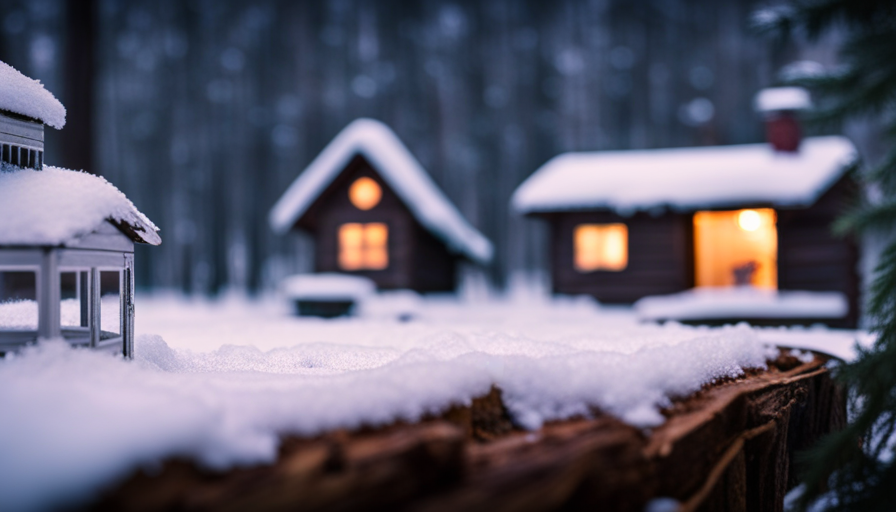
 Energy Efficiency1 month ago
Energy Efficiency1 month agoBest Tiny Homes For Cold Climates
-
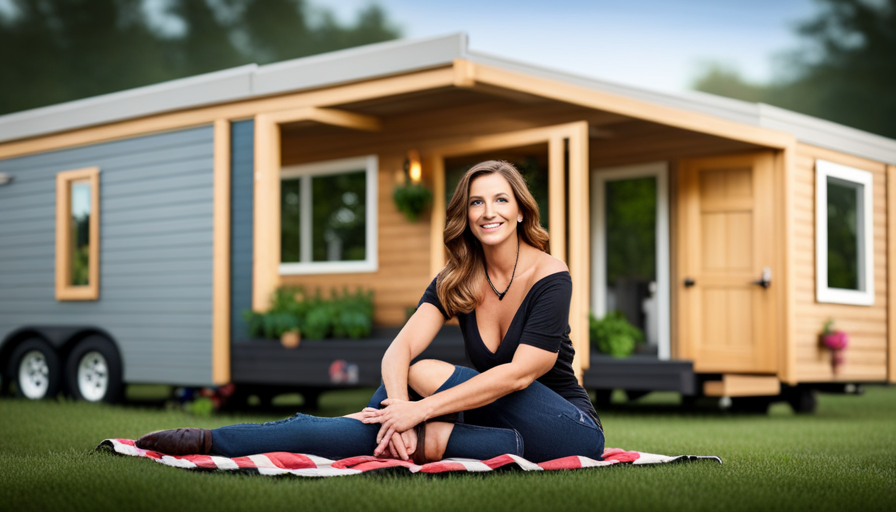
 Beginners Guides3 months ago
Beginners Guides3 months agoTiny House Nation Where Are They Now Stephanie
-
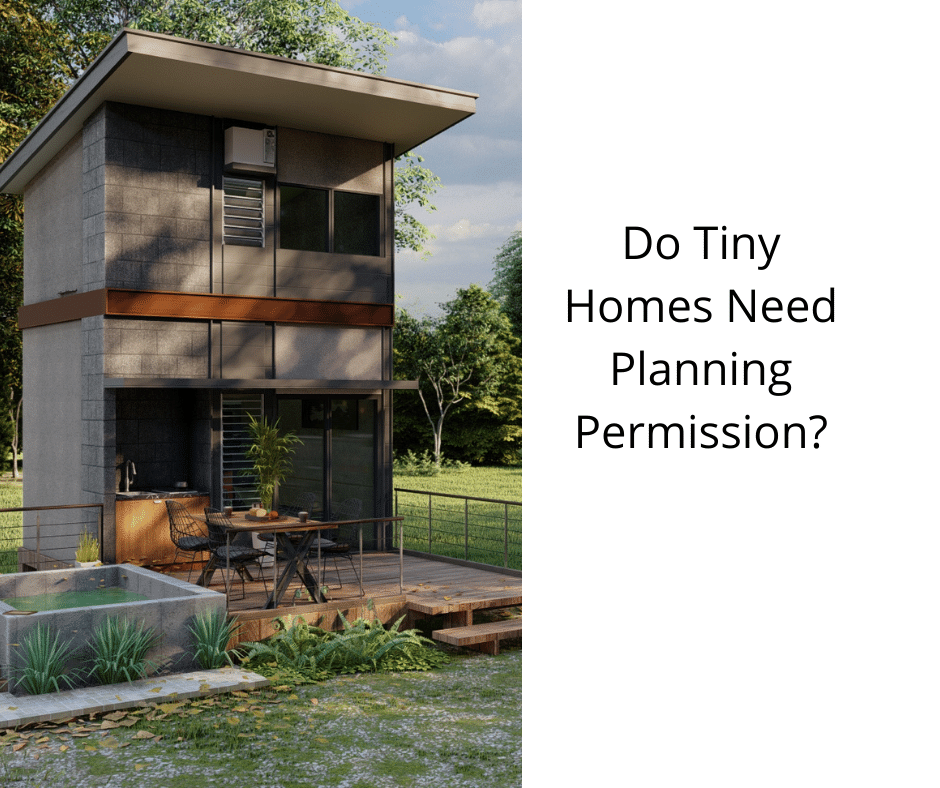
 Tiny House Resources (e.g., legalities, cost, insurance, FAQs)1 month ago
Tiny House Resources (e.g., legalities, cost, insurance, FAQs)1 month agoDo Tiny Homes Need Planning Permission?
-
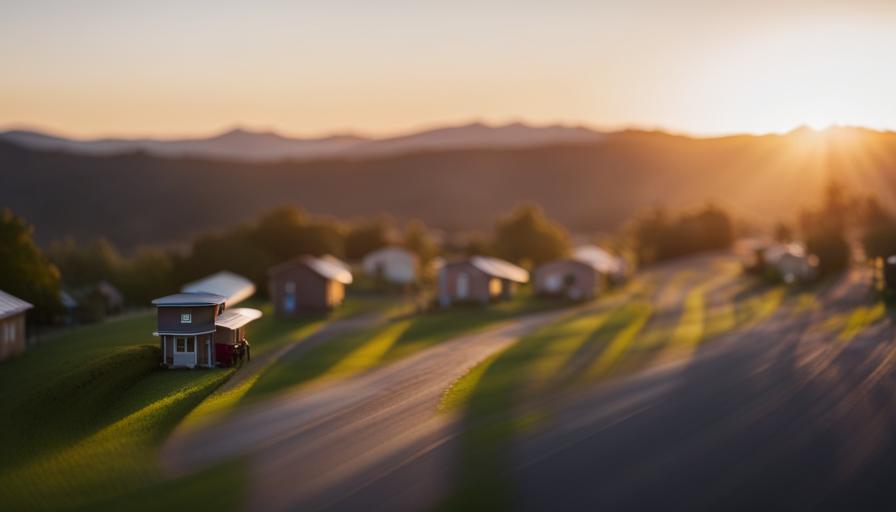
 Beginners Guides5 days ago
Beginners Guides5 days agoFrom The Show Tiny House Nation How Many Keep Their Tiny House?
-
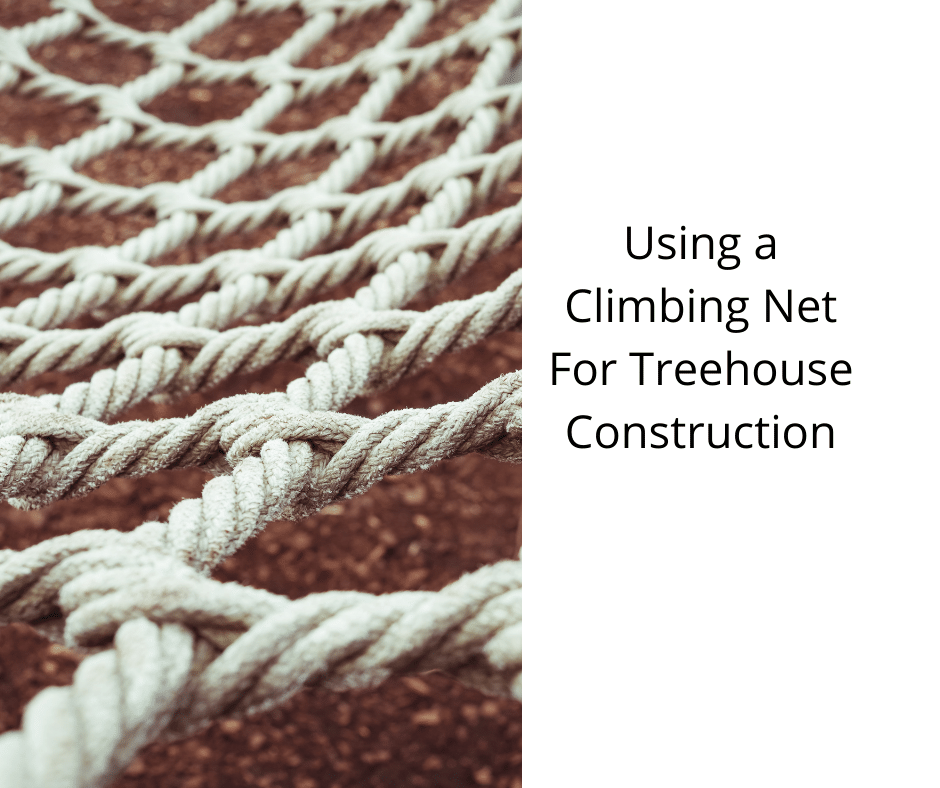
 Beginners Guides1 month ago
Beginners Guides1 month agoUsing a Climbing Net For Treehouse Construction
-
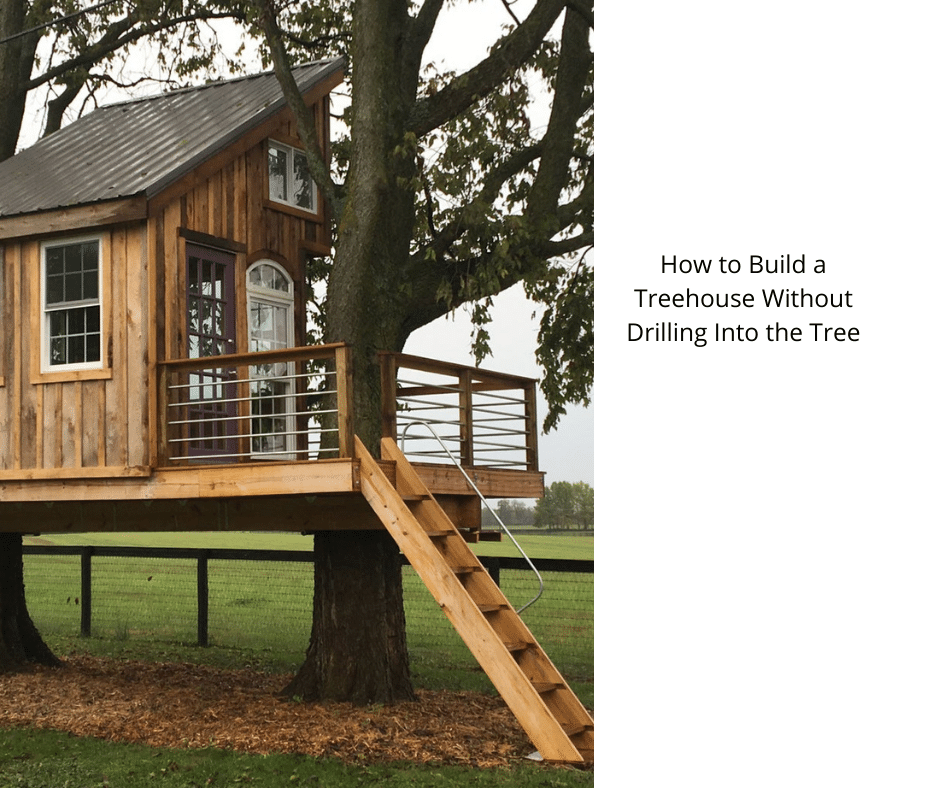
 Beginners Guides1 month ago
Beginners Guides1 month agoHow to Build a Treehouse Without Drilling Into the Tree
-
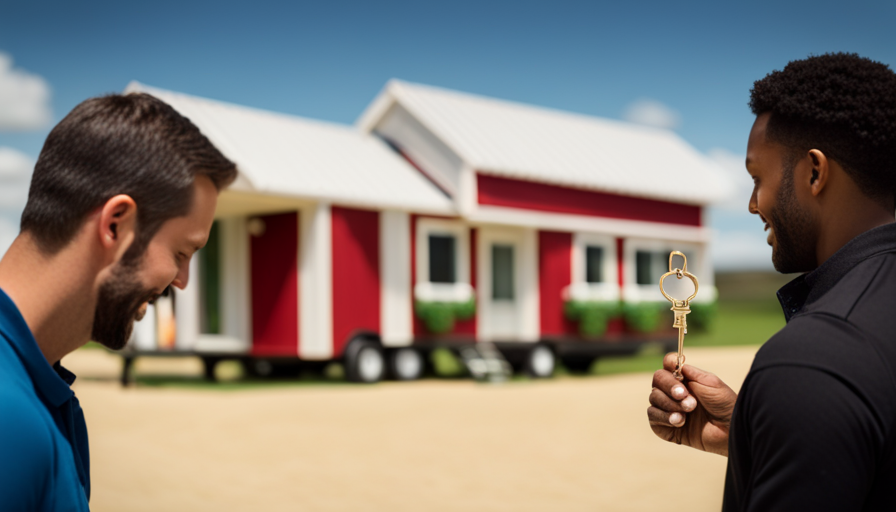
 Beginners Guides1 week ago
Beginners Guides1 week agoTiny House Nation Who Pays For The Houses












